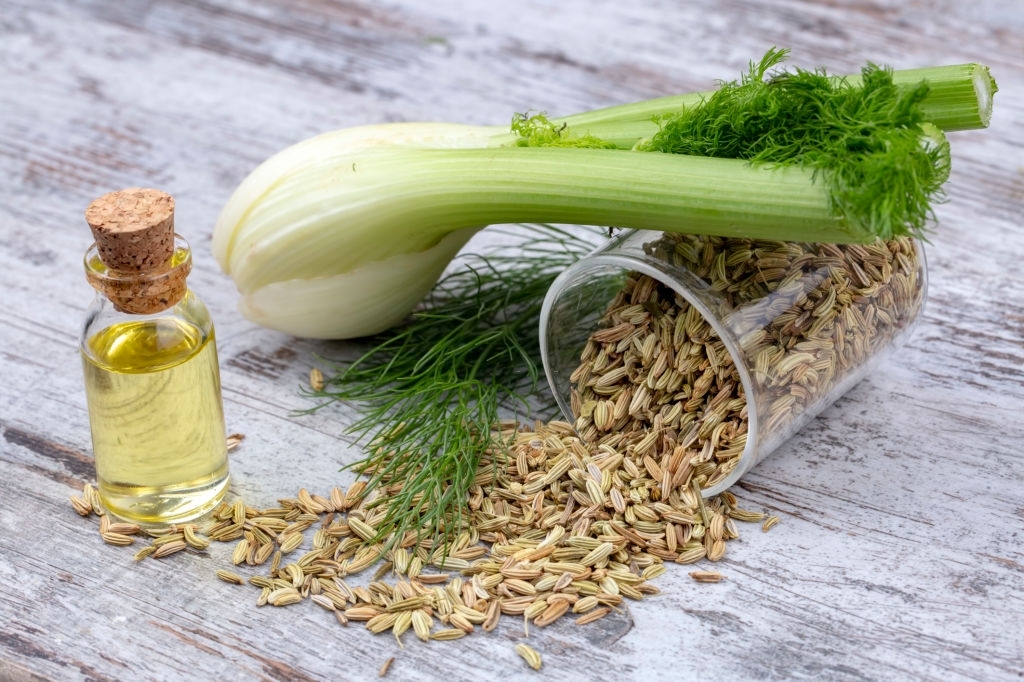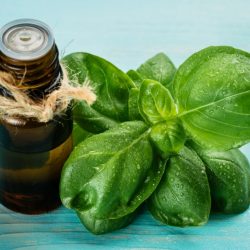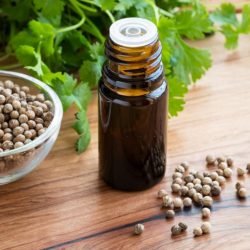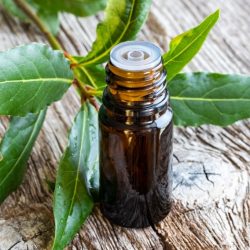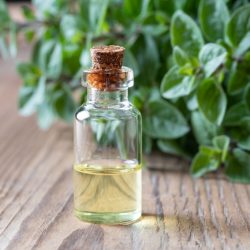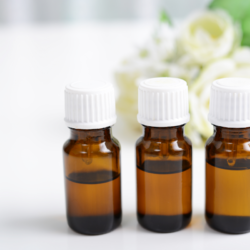In ancient Egypt, papyri almost 5,000 years old indicate the presence of fennel at that time. It is the same for Mesopotamian tablets from Babylon or from Assyria. Quoted and widely used by the Greeks, Arabs and Chinese, fennel also appears in certain botanical literary works of the Middle Ages. This plant has therefore long been considered a panacea .
A little bit of mythology
Prometheus “one day entered Olympus with the help of Athena , lit a torch in the chariot of the Sun and detached an ember from it, which he introduced into the hollow stem of a giant fennel. Then he fled and thus brought fire to men ”who, like us, from an obscure situation, achieved clarity of mind. Now, less than fire, fennel is at least its flame-holder, and without being a single ophthalmic remedy, fennel, when it is said to clear up the sight, indeed makes clear the spiritual vision.
Fennel thrives where the vine thrives. The Greek god Sabazios , whose main emblem is the serpent, a deity to whom we worshiped, maintained mysteries to which the followers surrendered adorned with white poplar and fennel. Sometimes assimilated to Dionysus , “god of ecstatic visions”, he shares, with this more famous deity, fennel. Dionysus is particularly associated with the vine, but, as spring comes, he crowns himself with fennel, as well as those who worship him, carrying on them the plant “which makes the eyes shine.” Moreover, the nod to Athena will undoubtedly not have escaped your sagacity. Although to my knowledge the fennel is not dedicated to this deity, Athena nonetheless bears as an emblem the owl whose keen sight we are not unaware of.
A little history
Known since Antiquity, fennel is mentioned in particular in the papyri of ancient Egypt and in Chinese and Indian medicine treatises. The Greeks considered it to be a galactogen, stomachic, emmenagogue and diuretic . Cultivated in the gardens of monasteries, its use spread in Europe in the Middle Ages.
From the Hippocratic Collection , we can thus consider that the medicinal properties of fennel are becoming bloated . This therefore explains why Charlemagne was a big consumer to pass his plethora of meals… and “not to put on weight”: it was moreover he who developed its cultivation on a large scale.
In aromatherapy, essential oil has been known as a remedy since the 16th century. Valnet (20th century) recommends it in digestive ailments, flatulence, aerophagia, nervous vomiting, inappetence and intestinal parasitosis . It is traditionally used as a digestive, antispasmodic and also known to stimulate the production of breast milk and fight against the symptoms of menopause .
What are the pharmacological properties of bitter fennel essential oil ?
Antispasmodic and digestive properties:
Fennel essential oil greatly reduces smooth muscle contractions and also stimulates gastric secretions and intestinal motility .
Antispasmodic , it is number 3 in spasm, after Ocinum basilicum and Artemisia dracunculus. Also neuromuscular antispasmodic , fennel oil is a reflex modifier of the central nervous system and the spinal cord (muscle resolution and analgesia, mild narcotic, psychoactive, analgesic…). Fennel actually reduces the spasm induced by acetylcholine or carbacol , just like atropine.
Stomachic, aperitif and carminative tonic , it generates a slight increase in digestive secretions.
Estrogenic properties:
Estrogen-like , by analogy with diethylstilbestrol, the essential oil of fennel has a demonstrated estrogenic hormonal action . It is also emmenagogue and stimulates milk production.
Antimicrobial property:
Fennel is an anti-infective against Escherichia coli, Staphylococcus aureus and Streptococcus pyogenes. It is also antifungal against the dermatophytes Trichophyton rubrum , Trichophyton tonsurans, Microsporum gypseum and Trichophyton mentagrophytes.
Mucolytic and expectorant properties:
Mucolytics and expectorants , the frenchone and anethole contained in fennel stimulate in vivo the volume of bronchial mucus excreted and reduce the production of bronchial secretions.
Anti-inflammatory properties:
Anti-inflammatory , the essential oil of fennel is cortison-like and therefore stimulates the pituitary-adrenal cortex. Which makes it an interesting oil in prolonged inflammatory conditions.
Other properties:
- Choleretic and cholagogue
- Diuretic, decongestant of the small pelvis
- Lipolytic and antihyperlipidic
- Autonomous nervous system sedative
- Lymphotonic and decongestant
- Hepatoprotective
- Antioxidant, comparable to tocopherol
- Antithrombotic, broad spectrum antiplatelet activity, and vasorelaxant action
- Acaricide
Does bitter fennel essential oil require precautions for use?
- Contraindicated in pregnant or breastfeeding women
- Caution in hormone-dependent pathologies ; do not combine with estrogenic treatment (including estrogen-progestogen)
- Risk of neurotoxicity which may induce epileptic seizures at high doses
- Do not combine with cortisone, risk of drug interaction
- Dermocausticity, do not use pure, dilution required
- Cytochrome P450 inhibitor, risk of drug interactions, ask your pharmacist for advice
- Caution in people with autoimmune diseases, epilepsy, asthma, the elderly or with Parkinson’s, as well as people with neurosensitivity
- Unless the ketone level on your product is indicated to be less than 5%:
- Do not diffuse, inhale, or put in the bath
- Do not swallow
- Cutaneous use only recommended
- Prohibited for internal use
- Contraindicated in non-pubescent children
- Reserved for adults
- Drug interactions with essential oils containing sesquiterpenes at more than 10%
- Caution in case of hypothyroidism
- Avoid association with anticoagulants or antiaggregants
- Prohibited in animals
Medical bibliographic sources and clinical trials :
- Howes MJ, Houghton PJ, Barlow DJ, Pocock VJ, Milligan SR. Assessment of estrogenic activity in some common essential oil constituents. J Pharm Pharmacol. 2002
- Albert-Puleo M. Fennel and anise as estrogenic agents. J Ethnopharmacol. 1980
- H. Özbek, S. Ura, H. Dülger car, Bayram, Tuncer, G. Öztürk, A. Öztürk. Hepatoprotective effect of Foeniculum vulgare essential oil. Fitoterapia, 2003
- Eun-Mi Choi and Jae-Kwan Hwang. Antiinflammatory, analgesic and antioxidant activities of the fruit of Foeniculum vulgare. Fitoterapia, 2004
- Zeng H, Chen X, Liang J. In vitro antifungal activity and mechanism of essential oil from fennel (Foeniculum vulgare L.) on dermatophyte species. J Med Microbiol. 2015
- Gurdip Singh, Sumitra Maurya, M.P. de Lampasona, C. Catalan. Chemical constituents, antifungal and antioxidative potential of Foeniculum vulgare volatile oil and its acetone extract. Food Control, 2006
- Ruberto, G., Baratta, M. T., Deans, S. G., & Dorman, H. D. (2000). Antioxidant and antimicrobial activity of Foeniculum vulgare and Crithmum maritimum essential oils. Planta medica
- Tognolini M, Ballabeni V, Bertoni S, Bruni R, Impicciatore M, Barocelli E. Protective effect of Foeniculum vulgare essential oil and anethole in an experimental model of thrombosis. Pharmacol Res car. 2007

